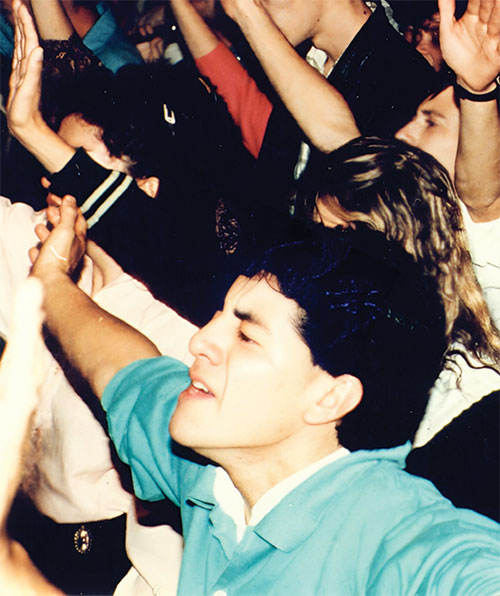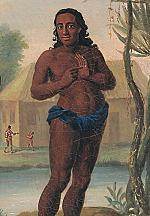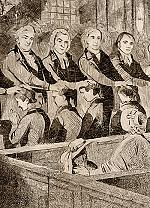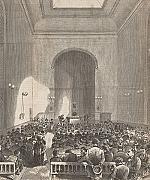Limitless

[Worshipers in Argentina, 1993—Flower Pentecostal Heritage Center]
This issue of Christian History goes back through the last century or two, tracing spiritual revivals and awakenings that have transformed the church. Most of these events ignited controversy when they happened, and some still do. In light of these sometimes sensitive topics, we asked our issue advisor, Michael McClymond, who has taught extensively on this subject, to give his thoughts on how to discern the movement of the Spirit.
First of all: be wary of people who present themselves as experts on the Holy Spirit—including people like me, who write articles such as this. No one has the Spirit figured out. Each of us is a learner.
Scripture says: “Now there are varieties of gifts, but the same Spirit. . . . To each is given the manifestation of the Spirit for the common good” (1 Cor. 12:4, 7 ESV). A recognition of the Spirit’s diverse work should deter us from spiritual snap judgments. We should not rely on our own experience as the measuring rod for evaluating everyone else’s. Because the Spirit is God, the Spirit is infinite. The ways in which the Spirit may find human expression are literally endless. How can we limit the infinite Spirit to only certain manifestations?
Lu Xiaomin (b. 1970) is a contemporary Chinese woman, born into a peasant household, who consecrated her life to Jesus, and then, despite her lack of musical training, began writing Christian songs that today are sung by millions of believers across China. She has now composed some 1,800 hymns. Who can say that this was not a gift of the Holy Spirit?
Pentecostals and Charismatics, as well as Christians who oppose their views, all run the risk of limiting the Spirit’s work. Whenever the first group treats spectacular experiences, or the 1 Corinthians 12 list of charismatic gifts, as the only supernatural phenomena, they omit a wide range of possibilities. Scripture teaches that the Spirit is the Convicter, the Converter, the Comforter, the Sanctifier, and the Spirit of Truth, just as he is the Healer and the Gift Giver. Just as one should not exclude the 1 Corinthians 12 list of spiritual gifts, one should also not limit the Spirit’s work to the 1 Corinthians 12 list.
Salvation is supernatural. God’s Word is supernatural. Conviction of sins is supernatural. Compassion for the suffering or the lost is supernatural. For this reason we need a broad bandwidth and a full-spectrum picture of the Spirit’s work. Such a biblically informed perspective can free us to take a more open—though still discerning—stance toward the reported spiritual experiences of our brothers and sisters in Christ.
By Michael J. McClymond
[Christian History originally published this article in Christian History Issue #153 in 2024]
Adapted and revised from Michael J. McClymond’s “What Revivals Can Teach Us,” originally published by Christianity Today.







